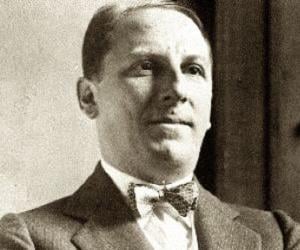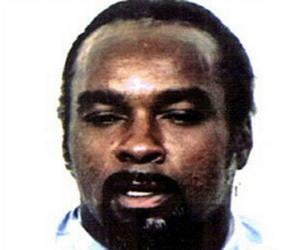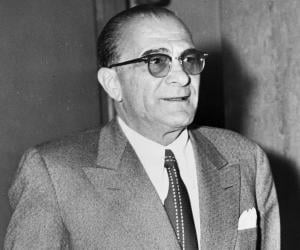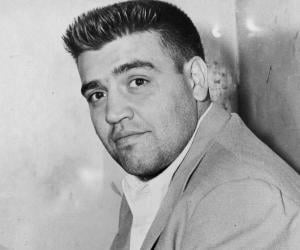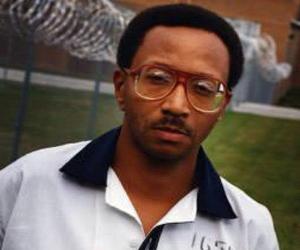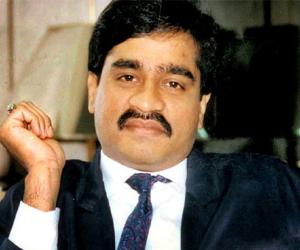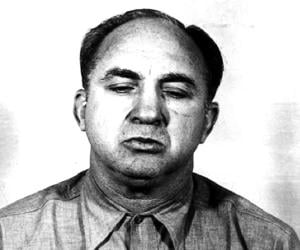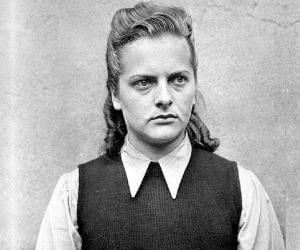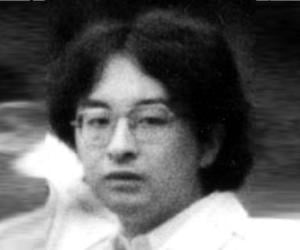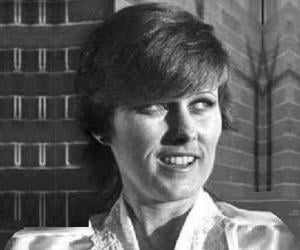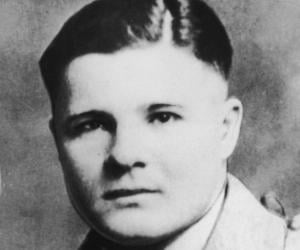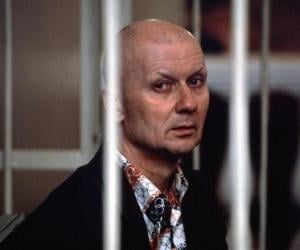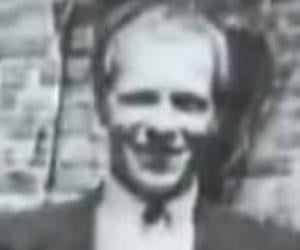Quick Facts
Nick Name: the Brain
Also Known As: Big Jim, The Cookie Monster, The Long Beach Tool
Died At Age: 46
Family:
Spouse/Ex-: Carolyn Greene (m. 1909–1928)
father: Abraham
mother: Esther Rothstein
siblings: Edgar Rothstein, Edith Lustig, Harry Rothstein, Jack Rothstein
Fraudsters American Men
Died on: November 6, 1928
Childhood & Early Life
Arnold Rothstein was born on January 17, 1882 in Manhattan, New York, into a well established Jewish business family. He was born to Abraham Rothstein and Esther and grew up with an older brother. Abraham was one of the most well respected man in his circles and was known typically as ‘Abe the just,’ meant a man with great character and self respect yet kind.
Arnold was good with numbers at a very young age and hence, he did well in mathematics while in school. He didn’t have any interest whatsoever in any other subject in school, which led to him dropping out of the high school at the age of 16. His father always favoured his older brother who later went on to become a rabbi.
Aspiring to create something of his own, Arnold started working as a travelling salesman for many companies. He initially liked it but soon he was bored of it as it paid less and didn’t allow him to make full use of his tactical skills. During his late teenage years, he stared drifting towards crime. He saw the opportunity in organized crime as they were mostly just fighting with each other and losing out on many lucrative business opportunities.
The hunger for a lavish life aside, what motivated him the most was the hatred he harboured for his family in his heart as a teenager. He thought his parents didn’t love him enough and that was why when he was asked by his father to stop the gambling, he didn’t. By the time Arnold was in his later teenage years, he was already making money off gambling.
By the age of 20 he started his very own casino from the money that he had made through winning cards and gambling over the years. He has become a known figure in the New York gambling scene owing to his winning streaks, which were somehow unnatural and more than mere ‘luck’. He was good at numbers and this worked in his favour.
The Crime Life
By 1910 he moved to Tenderloin, Manhattan and established a casino and invested in a horse racing track in Maryland. He fixed many races that he betted on and further became richer. He had a very intricate and sly team of agents that did the fixing jobs for him. He paid them handsomely and although what he did was illegal, his ways weren’t violent. By the age of 30 he was counted among one of the few millionaires in the New York City.
The infamous 1919 World Series fix brought him into the national limelight. His involvement was apparent and there were many different evidences against him stating him as one of the main culprits. The members of the team Chicago White Sox were paid by Arnold’s agents to lose on will to Cincinnati Reds. Arnold got filthy rich and the scandal when came out, brought a nationwide shame to the Sox and is known infamously as ‘Black Sox Scandal’.
Further indulging in betting on horse races, he had a racehorse that he named Sporting Blood who won the Travers Stake in 1921. That victory also took place under highly suspicious circumstances and further brought Arnold into the eyes of law. But the lack of sufficient and credible evidences against him had him not getting convicted. For betting on the races, Arnold used the name ‘Redstone Stable’.
The ban on alcohol during the prohibition period in the early 20’s was seen as a great business opportunity by Arnold. He entered bootlegging and narcotics and smuggled liquor from Canada and around the Hudson River. He also owned a number of holdings in many speakeasies. The illegal sales of alcohol, which was banned owing to the prohibition, remained his central source of income all through the years that he was active.
Arnold was a well educated, brainy and high profile criminal and had some great political connections, which somehow mellowed down the authoritarian interference in his operations. His organization had several infamous criminals such as Meyer Lansky and Charles Luciano among other gangster bosses. What Arnold did was try to bring them together on the same page and telling them how it was more profitable if they worked together. In a way, he politicized the gangsters and low key ran them as his puppets.
The remaining New York small and big gangs were further talked into working together as allies. He acted as a mediator between the gangs and earned himself a few nicknames such as The Fixer, Mr. Big, The Brain and The Big Bankroll. He charged a good enough for fee for acting as a mediator between the gangs and made further money. He held his meetings in the streets and brought many bodyguards along with him.
He worked extensively with the organization Tammany Hall and was recognized as one of the key players who were helping them in taking the hold of the city. He further bought brothels and made another set of massive fortune from prostitution. For being a mediator between the gangs, he was paid anywhere between 100,000 to half a million. He was later deemed as a successful corporate minded drug dealer.
Establishing a large criminal empire, by the late 20’s, he was known as one of the most successful and famous criminals in the city of New York. Until George Rumas took his place, he remained the richest bootlegger in the country. Known as one of the founders of the New York Organized crime syndicate, he self amassed fortune of $10 million.
Death & Legacy
Like most people involved in the crime life, Arnold Rothstein couldn’t live long. On 4th November 1928 he was shot dead during a business meeting at Park Central Hotel. It was said that the murder took place over a dispute originating from a high stake poker game that ran for three days in October. Arnold claimed that the game was fixed and his opponents cheated, which had him refusing to pay the $320,000 that he had lost.
Prohibition period was at its peak during the time of his death and the entire empire that he had delicately built eventually broke down after his death. His ‘associates’ divided his empire into many parts and took hold of them. Ten years after his death, Arnold’s brother officially declared Arnold’s estate to be totally bankrupt and his great wealth disappeared.
Some films such as ‘The Great Gatsby,’ ‘Eight Men Out’ and ‘Mobsters’ feature the characters directly inspired by Arnold Rothstein.
Facts About Arnold Rothstein
Arnold Rothstein was known for his impeccable fashion sense, often sporting tailored suits and stylish accessories that set him apart from others in his line of work.
Rothstein had a reputation for being a master of strategy and tactics, earning him the nickname “The Brain” among his associates and rivals in the underworld.
Despite his involvement in illegal activities, Rothstein was also a patron of the arts and had a keen interest in literature and culture, surprising many with his intellectual pursuits.
Rothstein was a skilled poker player and was credited with popularizing the game in the early 20th century, often hosting high-stakes games that attracted both high society and underworld figures.
Rothstein had a charismatic personality and was known for his wit and charm, which helped him navigate the dangerous world of organized crime with finesse and cunning.
See more:


